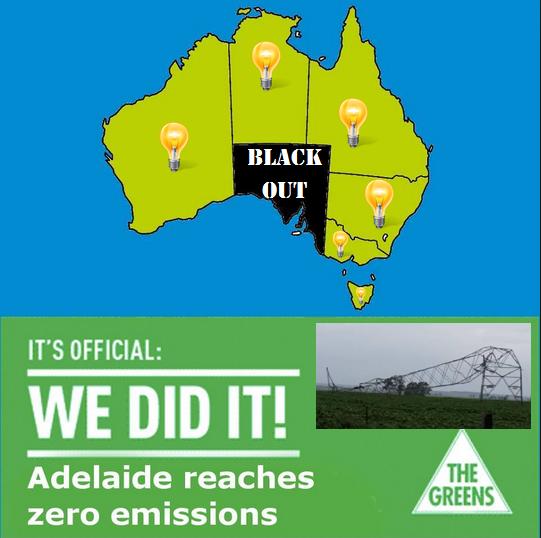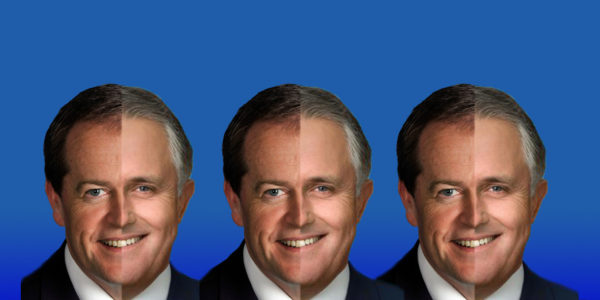The polly wombles of Canberra are experimenting with good choofing twent as far away from reality as they can dream…
“The greatest contribution the Finkel Review makes to Australian public policy may, in fact, be a new verb” (or herb).
by Brett Hogan, The Spectator, June 20 2017, ‘ What will they Finkel next?’
https://spectator.com.au/2017/06/what-will-they-finkel-next/
From June 2017, to ‘finkel’ will be a term to describe how a government sets up an independent review that quickly gets hijacked by vested interests, rewrites its own terms of reference and delivers a report with skewed modelling and a patchwork of contradictory recommendations burning its political masters.
It has all been too clever by half.
The Finkel Review was set up in the wake of the September 2016 blackout in South Australia which many at the time thought would be the beginning of the end of renewables’ stranglehold on Australian policy makers – state and federal, Labor and Liberal.
In the twenty-first century, an established state in a modern, industrialised economy went black. Finally, the chickens would come home to roost and a road map put together charting a way back to affordable and reliable electricity in a country that should be spoilt for choice.
Yet the preliminary report published barely two months later gave some clues that the empire was quickly striking back.
It was arranged in accordance with seven North Korean-inspired themes including ‘Consumers are Driving Change’, ‘The Transition to a Low-Emissions Economy is Underway,’ and ‘Technology is Transforming the Electricity Sector.’
Its limited case study of the South Australian blackout all but ignored that state’s post-renewables reliance on brown coal electricity generated over 600 kilometres away in eastern Victoria.

It also included a reference to a mind-boggling 21 separate reviews currently underway or recently completed into the Australian energy market, a fact that says much about the handballing epidemic currently prevalent in our political culture.
So it shouldn’t have been a surprise when the final report, released on 9 June, offered more of the same. The difference was this time it had clearly over-stretched.
It was revealed as a report that purported to be concerned with electricity affordability and security but floated a generator emissions limit at a level (600kg per megawatt hour) that would conveniently exclude almost all coal.
This is despite the fact that Australia’s wholesale electricity price, largely provided by baseload coal supplemented by gas happily bounced along between $30 to $40 per megawatt hour between 2000 and 2006 before starting its rapid rise to a new benchmark of over $100 in 2017 as subsidized solar and wind power started pushing gas and coal out of the market.
It was revealed as a report that purported to be concerned with emissions reduction but studiously avoided all but a passing reference to the one source that could provide reliable baseload power with zero emissions, namely nuclear power, despite Dr Finkel’s previous support.
The IPA and others highlighted that the so-called $90 per household saving of the Clean Energy Target scheme was actually achieved by comparing it with the current, unsustainable, price-inflated mess of national and state renewable energy targets, agencies and funding mechanisms, rather than a genuine Business As Usual (i.e. no government interference) benchmark.
The Review’s ham-fisted attempt to construct an edifice of rules, regulation, new reports and more powers for regulators to justify its acceptance of the inevitability of renewables came unstuck when it was revealed that the so-called $90 annual saving didn’t actually include the new target’s cost to retailers or the cost of back-up generators to balance the system and that the modelling firm had previously under-estimates renewables’ impact on wholesale prices.
Most significantly perhaps, its call on federal and state governments to agree on an ‘emissions reduction trajectory’ and support for a zero emissions target in the second half of the century revealed its true priorities.
The problem for the Finkel Review and for the many renewable energy advocates is that the rest of us have to live in the real world.
And it is in this real world that last week, three major electricity retailers announced double-digit price increases to take effect from 1 July, with at least one of the companies openly sheeting the blame home to the increase in wholesale electricity prices.
BP last week released its respected annual Statistical Review of World Energy, which found that non-hydro renewables provided only 3.2 per cent of the world’s energy in 2016, or a little over 11 days’ worth.
And renewables advocacy group Bloomberg New Energy Finance reported that the global push for renewables would cost $7.4 trillion between 2016 and 2040, though an additional $5.3 trillion would be needed to hold the planet to a two-degree warming trajectory.
Danish statistician Bjorn Lomborg got it right in 2015 when he said that “When the wind is not blowing, wind-generated electricity is the most expensive electricity of all because it cannot be bought at any price,” a point equally applicable to other weather-dependent renewables like solar and hydro.
Time is fast running out for Australia to renew its ageing energy infrastructure before major pieces of its industrial base move offshore and even more households succumb to skyrocketing power bills.
The Turnbull Government should politely thank the Finkel Review members for their work and politely put their report into the cupboard alongside the cardigans, frisbees and cassette tape recorders whose existence is acknowledged but whose absence from active use is unlamented.

and…
by Rowan Dean, The Spectator Australia, June 17 2017 in his article ‘The Finkel farrago’
https://spectator.com.au/2017/06/the-finkel-farrago/
By what authority does the Turnbull government believe it has a mandate to lay waste to the economy and destroy our children’s patrimony? And by what authority does the Shorten opposition believe it has a mandate to do even worse?
These two seem to want to turn us into the Venezuela of the South Seas. With the world’s largest oil reserves, Venezuela’s politicians reduced their once proud country into importing petrol, sustained blackouts and food queues. Is this what Turnbull and Shorten want for Australia?
Don’t get excited looking for answers to our energy crisis within the pages of the Finkel ‘blueprint’. It will in no way cure the disaster that is the Renewables Energy Target and it won’t reduce the exorbitant electricity bills the politicians have imposed on the nation. Finkel in no way questions the Turnbull government’s disgraceful commitment to the Paris Accord, announced the very day after Donald Trump was elected, to do what India, China and Trump’s US don’t even promise to do and which many other signatories will never do − cut CO2 emissions savagely by 26 to 28 per cent by 2030.
The reductions Finkel promises are just not real. While inexplicably increasing the target to a Labor-lite 42 per cent, Finkel claims prices won’t rise as fast as at present. This is explained by − you guessed it − a computer projection. Like the IPCC’s disastrously wrong climate modelling, perhaps? Another application, perhaps, of the principle purgamentum init exit purgamentum – garbage in, garbage out.
One caller to Alan Jones’ vast radio audience summed it up: the electricity bill for a similar business to his in America is about one third of his local bill. Our politicians are forcing him to move his business there. This is not an isolated example. Since the politicians began their insane meddling in the market, wholesale electricity prices have gone from around $50 a megawatt hour to about $150 − a disaster for just about every business dependent on electricity. Meanwhile, the electricity bills of the nation’s struggling families are going through the roof. And for what?
This insanity won’t change the temperature by any discernible amount, as the brilliant Ian Plimer points out in this week’s issue.
With the exception of Tony Abbott and the 22 ‘braves’ in the partyroom, as well as Cory Bernardi and Pauline Hanson’s One Nation, neither side of politics could care less about the fact that they’ve succeeded in turning this very low energy cost country into a nation with one of the world’s highest energy costs.
With their own hypocritically massive carbon footprints, all our politicians seem to think about is lining their own pockets. Even those rivers of gold they garner from each and every first preference vote are not enough. They’re open to generous ‘donations’ from sources close to the Chinese Communist Party, even when they’re warned against this by ASIO.
There’s a stench of treachery about politicians who accept these ‘donations’ and happily agree to the bargain basement sell-off of our prime agricultural land as well as heritage and even security assets to much of the same source. And when they leave Parliament early, declaring solemnly it’s to spend more time with the family, their very generous pensions are not enough – they sign up, sometimes almost immediately, to massive returns as door openers, deal greasers, lobbyists or other sleazy activities.
They’d better wake up before the people, who increasingly suspect or realise they’re being taken for a ride, throw them out. An Essential poll reveals not only Liberal voters (55:15) but all voters (47:21) are now far more concerned that rising energy costs and the stability of the energy supply should be prioritised over reducing carbon emissions.
Both the ‘Turnbull Coalition Team’ and Labor have been warned.
Gillard’s folly
Quelle surprise! A draft paper by the Productivity Commission on the costs of the $22 billion National Disability Insurance Scheme (NDIS) specifically points the finger of blame at the Gillard government for jeopardising the entire project with its poor ‘planning processes, supporting infrastructure and market development’.

Worse, the ‘success and financial stability’ of the entire project has been put ‘at risk’ by the Gillard government’s unseemly haste to strike ill-considered deals.
Yet rather than using this analysis to slam its political opponents and drastically cut back on an unaffordable scheme, the Turnbull government has adopted the programme.
As usual, taxpayers are the biggest losers.
Pyne’s Cherry Bar Bombshell
Meanwhile at the Liberals Friday Drinks last week, minister Christopher Pyne let’s slip Mal’s Greens policy of imposing deviant marriage on the nation to kick start a faggot surrogacy industry…“sooner than everyone thinks’.

What plebiscite?
Mr Pyne told the bar that “we have to deliver a couple of things and one of those we’ve got to deliver before too long is marriage equality in this country. I think it might even be sooner than everyone thinks’’.
So much for any respect left for traditional Australia by PM Malcolm Turnbull who promised voters would have a say through a plebiscite before any changes to the Marriage Act were considered.

Greens-Labor is opposed to the plebiscite believing it could harm faggots, dykes and trannies wanting carte blanche to mail order Third World golliwog surrogacy.

Gay Dad’s Australia in Darlinghurst and Fitzroy are frothing and polyamorous mail ordering has already started. And that just a wedge. ‘Progressive’ Canada has just legalised bestiality. Anyone who disagrees must be a bigot.
So on top of Labor’s climate tax fraud, useless NBN, NDIS rort, Gonski rort, shutting down power stations, ending manufacturing, skyrocketing debt and the nation toward becoming a colony of China. Well, Mal’s run out of Greens-Labor policy to implement – leftist job done. All he need do is bring back the boats and Malcolm Bligh Turnbull can soon retire and take up lobbying at Goldman Sachs.